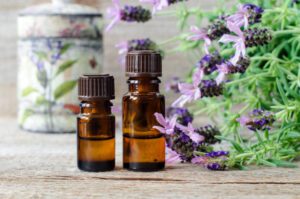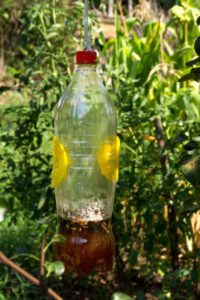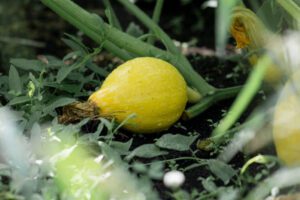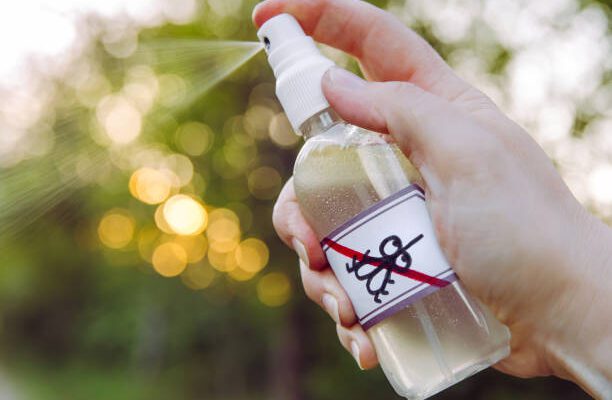Every home eventually deals with a pests issue, whether it be ants, roaches, spiders, or bed bugs. But, you don’t need to look for the harshest insecticides available every time an insect is skulking around. Almost any pest problem can be treated at home with natural remedies that are widely accessible. We’ll show you how!
Despite the fact that powerful insecticides and pesticides are quite effective, you may not always want to use them inside or around your home. While some people find smells to be unsettling, others won’t use chemicals around their children or animals. Whatever your reason, natural treatments provide a safe solution to your pest problem.
-
Following are a few natural insecticides:
Oil essentials insecticides
 (Photo from istock)
(Photo from istock)
Essential oils, such those from lavender, peppermint, spearmint, and eucalyptus, not only have pleasant scents but may also be used to kill bedbugs and dust mites in addition to purifying the air and enhancing mood. You can mix a few drops of the oil with water and spray it directly on trouble spots like sofas, mattresses, carpets, rugs, and mats because these oils are typically found in highly concentrated form.
Use salt
Another fantastic element for ant and flea control is salt. To keep ants out of your house, scatter salt around the windows and doors. The easiest way to get rid of fleas—which typically hang out around the carpet—is to sprinkle salt directly onto carpets and rugs.
(One additional suggestion: Sprinkle some finely powdered rosemary leaves on your pets’ bedding to help repel fleas.)
Vinegar as an insecticides
 (Photo from istock)
(Photo from istock)
Vinegar is one of nature’s best remedies for cleaning and keeping pests like ants and fruit flies away. In fact, according to HGTV, ants are deterred from leaving scent-based trails. For navigation by the potent stench of vinegar. It attracts fruit flies, which you may use as bait to catch and kill them at the same time.
Usage of lemon to control pest
 (Photo from istock)
(Photo from istock)
Lemon and lime juice work well as deodorizers and are effective in keeping ants, spiders, and snails away. Spiders don’t like citrus, so if you lightly spritz either kind of juice around your doors and windows. They won’t go there. Since it typically comes in concentrated solutions. You can mix this juice with water and spray it all over your window glass and door frames.
Mint
Another excellent component that deters a variety of pests without creating a mess is mint. It deters common annoyances including flies, mosquitoes, and ants. Just place mint leaves around your windows, doors, and any potential entry points for insects into your home. Even better, you can grow mint plants close to home doors. It will not only keep bugs out. But it will also give your entranceways a revitalizing aroma!
Baking soda as an insecticides
An effective remedy for roaches is baking soda. Also, it is the most effective at getting rid of them when coupled with powdered sugar. The two elements can be mixed together and applied liberally to the region where the pests are visible. It is one of the best, however slightly filthy, ways to get rid of bugs.
Cucumber peels
Also, very powerful against ants are cucumber peels, particularly the bitter ones. Pest control companies like Planet Natural even strongly advise it. To keep ant colonies away, place peels around windows and doors.
Detergent as an insecticides
Although not entirely natural, detergent is less harsh than the potent chemicals found in pesticides and insecticides. They can easily be used to trap and eliminate fruit flies. Along with adding some detergent to your bait, you may also leave out some wine or apple cider vinegar to attract flies. This will quickly capture and destroy the pests.
A clean soil
Pest garden insects can actually be discouraged by good soil. But getting ready takes time. Here’s a technique that really works:
- When the growing season starts, turn organic stuff like compost into the soil first. By including natural components and pest-repelling substances. This will help keep your soil clean.
- After tilling, cover your garden for six months with cardboard or black plastic. The majority of garden pests, including their eggs, weeds, parasites. And a variety of other dangerous germs, will be killed by the heat that accumulates underneath it.
- Lightly cultivate the soil after removing the plastic. You are now prepared to plant.
Disease and pest-resistant seeds
Pests and illnesses are simpler to prevent than to eradicate after they have invaded your garden. Look for letters like V, F, N, or T after a seed’s name when browsing through a seed catalogue. These letters denote the issues to which the seed is most resilient. The letters V and F stand for the tomato illnesses verticillium and fusarium, respectively; N is for nematodes; and T stands for the tobacco mosaic virus, which causes the plant’s leaves to wilt and turn yellow as well as causing harm to the roots.
Watering plants in the morning
Why? Well, plants use water primarily to promote photosynthesis, which occurs during the day. Also, watering later in the day will result in damp leaves during the chilly night-time. Which is excellent for the growth of fungus and other illnesses. As you water, make sure to drench the roots rather than the foliage. Hoses that drip or soak are a wise investment. Use these recommendations to save water in your garden.
Keep your garden clean
Because decaying plant waste serves as a perfect habitat for fungus, garden bugs, and diseases, it is crucial to remove faded blossoms, fallen leaves, and weeds. Every time you enter your garden, bring a small pail or bucket with you and use it to gather garden waste.
Try using insect traps
Almost all garden centres sell yellow “adhesive” cards. If you put them on the ground and in between plant shoots or branches, they will catch a lot of garden pests that are running around your garden. Contact your local garden center or county extension agent to learn how to identify between good and hazardous garden bugs.
References:
Birds&Blooms
Worried with water pollution, want to lessen its hazardous effects? What are you waiting for!, click on the link below:
How to Lessen Water Pollution




